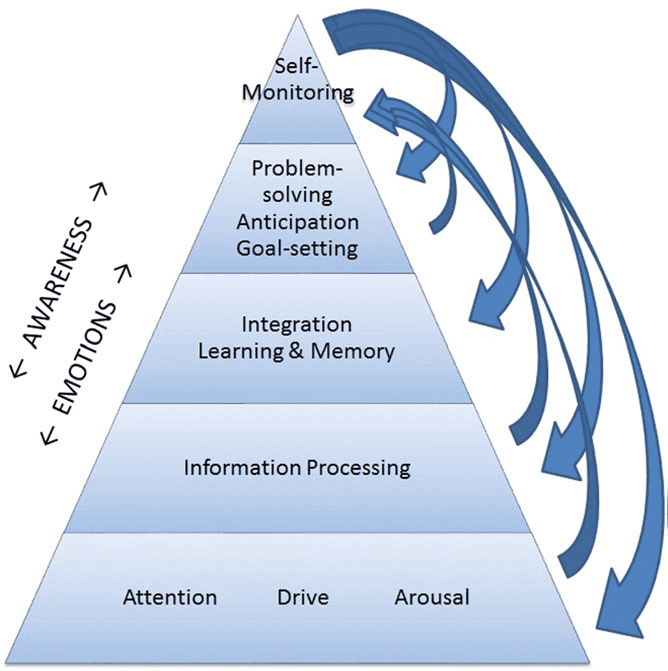A neuropsychological evaluation and testing consists of a clinical interview as well as the administration of standardized cognitive measures which can provide invaluable insight to referring physicians, clients and their families with respect to the etiology of neurological symptoms, while also help guide providers on how to better address those challenges in treatment.
Common reasons for testing
Clarify a Diagnosis: People often seek neuropsychological evaluations to clarify or establish a diagnosis. These tests distinguish between different neurological conditions and help understand the cognitive issues that come with them.
Create a Cognitive Remediation Treatment Plan: A neuropsychological evaluation helps create a treatment plan geared toward cognitive improvement after diagnosing a condition. This plan identifies strengths and weaknesses in cognitive function, allowing for targeted therapies and interventions.
Measure the Level of Cognitive Impairment: Neuropsychological evaluations are essential for measuring cognitive decline or impairment for people with known diagnoses. These assessments give healthcare professionals a full picture of cognitive function, enabling them to track changes over time and adapt treatment plans as needed.
Get Accommodations in School, Work, and Tests: Neuropsychological evaluations can also help you secure accommodations, especially if you have conditions like ADHD or learning disabilities. The tests provide objective data about cognitive strengths and weaknesses, underpinning requests for reasonable adjustments and ensuring equal opportunities.
Document Cognitive Abilities Before Medical Procedures: Before undergoing significant medical interventions like medication changes, surgeries, or cancer treatments, it’s crucial to document current cognitive abilities. This baseline evaluation serves as a reference point for future assessments. It helps to evaluate the impact of medical treatments on cognitive function.
Evaluate Cognitive Changes After Medical Procedures: After a medical procedure, you can have another neuropsychological evaluation to see if your cognitive abilities have changed. This helps gauge the treatment’s effectiveness and informs any additional therapies or interventions that may be needed

Overview of Tests in Neuropsychological Evaluation
During a neuropsychological evaluation, healthcare professionals usually assess several types of cognitive functions and abilities. The exact tests can differ based on the assessment’s purpose and the concerns the individual raises. However, the following areas often undergo evaluation:
- Memory: The tests measure various forms of memory, such as immediate and delayed recall, recognition memory, and working memory.
- Attention and Concentration: Specific tasks gauge different aspects of attention, like sustained, selective, and divided attention, along with processing speed.
- Executive Functioning: These tests explore abilities like problem-solving, reasoning, planning, organization, cognitive flexibility, and decision-making.
- Language and Communication: This area includes assessments for language comprehension, verbal expression, reading, writing, and naming skills.
- Visuospatial Skills: Evaluators use tests to analyze visual perception, spatial orientation, visual-motor coordination, and the mental manipulation of objects or spatial relationships.
- Processing Speed: Tests measure how a person can complete cognitive tasks.
- Motor Skills: The assessment looks at fine and gross motor skills and motor planning abilities.
- Perception: The tests evaluate sensory perception, covering visual and auditory processing areas.
- Emotional Functioning might involve measuring mood, emotional regulation, and social cognition.
- Intelligence: Sometimes, IQ tests are included to offer a broader view of cognitive abilities.
The specific set of tests can differ depending on the individual’s condition, age, and concerns. Evaluation results pinpoint cognitive strengths and weaknesses, assist with diagnoses, guide treatment plans, track changes over time, and suggest interventions or accommodations.
Uncovering Cognitive Impairments through Neuropsychological Evaluation.
Neuropsychological assessments can diagnose and gauge the severity of various cognitive impairments. Here are some conditions that these assessments commonly evaluate:
Alzheimer’s and Other Forms of Dementia: These assessments help diagnose and monitor conditions like Alzheimer’s disease, frontotemporal dementia, and Lewy body dementia, which often result in cognitive impairments.
Mild Cognitive Impairment (MCI): A neuropsychological assessment can identify and track the progression of MCI, a minor decline in cognitive abilities that could lead to dementia.
Concussion: After a concussion or mild traumatic brain injury, neuropsychological assessments measure the impact on cognitive function and help shape effective treatment plans.
Traumatic Brain Injury (TBI): Neuropsychological assessments are essential for understanding cognitive impairments and creating rehabilitation plans for those who have sustained a moderate to severe TBI.
Multiple Sclerosis (MS): MS can impair different cognitive domains, and neuropsychological assessments help gauge these changes, providing valuable input for managing them.
Attention Deficit: A neuropsychological evaluation for ADHD is a comprehensive assessment to determine the presence of ADHD and understand an individual’s cognitive and behavioral traits. This evaluation includes a clinical interview, rating scales, cognitive and academic testing, and behavioral observations. The results help confirm or rule out an ADHD diagnosis, provide a detailed understanding of the person’s strengths and weaknesses, and guide treatment decisions and accommodation requests in academic or professional settings.
These assessments offer crucial insights that inform various treatment strategies, helping diagnose conditions and develop effective management plans.
- Epilepsy: Neuropsychological assessments help pinpoint cognitive deficits related to epilepsy and play a key role in planning treatment and managing medication.
- Stroke: A neuropsychological assessment gauges cognitive impairments and informs rehabilitation strategies after a stroke.
- Brain Tumor: Such assessments evaluate the cognitive impact of brain tumors and assist in shaping treatment plans.
- Hydrocephalus: Characterized by abnormal accumulation of cerebrospinal fluid, hydrocephalus can lead to cognitive issues. Neuropsychological assessments assess this impact and guide management strategies.
- Encephalitis: When encephalitis causes cognitive impairments, a neuropsychological assessment can measure the extent of these issues and help guide treatment.

